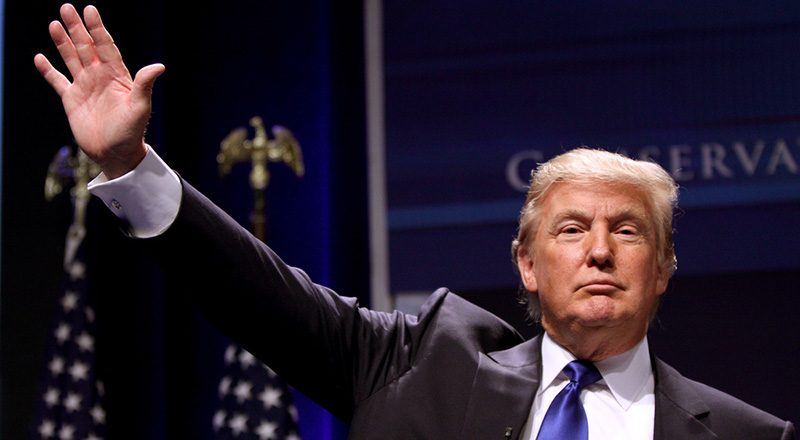Donald Trump told the New York Times he had “an open mind” on climate change no fewer than seven times.
It represents a softening of his stance since he described it as a hoax perpetrated by the Chinese – a charge they directly refuted last week.
But the full transcript of the meeting with some of his staunchest media critics shows the US president-elect trying to justify scepticism of the science.
He invoked his uncle, John Trump, a physicist and engineer at the Massachussetts Institute of Technology who died in 1985.
“My uncle was for 35 years a professor at MIT. He was a great engineer, scientist. He was a great guy. And he was … a long time ago, he had feelings — this was a long time ago — he had feelings on this subject.”
The precise nature of those feelings, formulated before today’s scientific consensus on global warming crystalised, is undocumented. At least, they are not mentioned in profiles of the nuclear pioneer by the New Yorker or Physics Today.
Weekly briefing: Sign up for your essential climate politics update
Then the president-elect moved on to “climategate”, the 2009 leak of emails between climate scientists at the University of East Anglia. The cache was purported to show collusion to mislead the public, claims that were later debunked.
Trump said: “I know we have, they say they have science on one side but then they also have those horrible emails that were sent between the scientists. Where was that, in Geneva or wherever five years ago? Terrible.”
The science “on one side” amounts to tens of thousands of studies showing that climate change is unequivocal, caused by human activity and having dangerous impacts.
Trump also claimed that the hottest day ever was in 1898, which unless he was talking about the state of Oregon, is not true.
In any case, daily temperatures are an inappropriate metric for a trend occurring over decades. More relevant is that the last 16 years have been among the 17 hottest on record globally, as confirmed by the World Meteorological Organisation.
Report: Trump prioritises axing coal, oil and gas regulations
It is when Trump is asked about the link between human activity and climate change that the motivation for his reasoning becomes clear.
“I think right now… well, I think there is some connectivity. There is some, something. It depends on how much. It also depends on how much it’s going to cost our companies.”
In other words, he will only trust climate science to the extent it is politically convenient.
In a video address on Monday, Trump promised to cancel “job-killing restrictions” on coal and shale energy production in his first 100 days.
Business leaders have urged him to look at the bigger picture, with long term benefits to pursuing green growth.
On Tuesday, 30 US mayors weighed in, with an open letter calling for a renewable energy push to tackle global warming. “The cost of prevention pales in comparison to cost of inaction, in terms of dollars, property and human life,” said figures including Bill de Blasio and Eric Garcetti.
Michael Bloomberg, media magnate and former New York mayor, told the China General Chamber of Commerce in Washington the US would meet its climate commitments with or without Trump.
“Cities, businesses and citizens will continue reducing emissions, because they have concluded – just as China has – that doing so is in their own self-interest,” he said.
Still, Trump’s apparent willingness to undermine climate science to rationalise fossil-friendly policies is cause for concern. Campaign adviser Bob Walker told the Guardian Trump would defund NASA’s climate change research, saying it was too “politicised”.
Any sign of pragmatic reconciliation with climate reality from Trump has to be welcomed. But actions speak louder than words.
